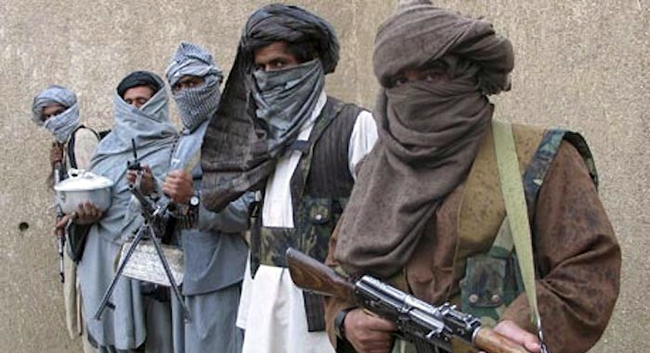Following the fall of the Taliban’s regime, Afghanistan sought peace through negotiation and urged warring factions to stop violence and bloodshed. Peace was a top priority for Afghan government as the country moved to democratization. Pakistan deemed peace talks the only viable option for political stability and promised to nudge the Taliban to sit around the negotiating table. As a result, a face-to-face negotiation was hosted between Afghan officials and Taliban elements last year in July in Murree. However, the revelation of Mullah Omar’s death and subsequent struggle for succession in the Taliban leadership threw the whole process into uncertainty.
Omar’s successor Mullah Akhtar Mansour refused to hold talks and staged deadly attacks against Afghanistan by declaring spring offensive and Omari Operation, which dismantled the Afghan-Pak relations. Similarly, Mansour’s death, who was killed in a US drone strike in May for being called an obstacle before peace talks, deteriorated the relations and put an end to the Quadrilateral Coordination Group (QCG) consisting of Afghanistan, Pakistan, China and the United States. So, the death of the two Taliban’s leaders brought peace talks to the stalemate.
Now, it is the third leader, Mansour’s successor Mullah Haibatullah Akhundzada, to play his role. Haibatullah follows his predecessor’s footsteps and leaves no room for peace talks. Since he is a radical ideologue, perhaps the same as Omar, he seeks to practice upon his fundamental mentality and continue bloodshed in Afghanistan. It is believed that he views the issue through ideological lens and holding talks with the presence of the US soldiers in Afghanistan will be against his ideology. Therefore, the militancy and terrorist offensives have been escalated in Afghanistan and the civilians casualties increased to a great extent.
A number of warring parties are involved in insurgency and the Taliban form the bulk of the insurgent group. Afghan President Muhammad Ashraf Ghani said in NATO summit, in Warsaw, “The conflict is multi-dimensional, ranging from Al-Qaeda and Daesh to terrorist groups with Central Asian, Chinese, and Russian origins, to Pakistani groups classified as terrorists by Pakistan and Afghan Taliban groups.”
Currently, the hope for peace talks has ebbed away and Afghan government resorted to military actions as backlash against the Taliban’s heavy inroads. Similarly, Pakistan is also said to increase attacks on Taliban. Of late, US Secretary of State John Kerry has said that Pakistan made progress in the fight against extremism in recent months, but urged Islamabad to push harder against militants hiding within its borders. He said that the US had made it clear to Islamabad that it needs to act against groups such as the Taliban-linked Haqqani network and Lashkar-e-Taiba that are suspected of operating from Pakistan to launch attacks against its neighbors India and Afghanistan.
Both Afghan and Pakistani nations have suffered from terror and insurgency and their rights and liberty have been violated by warring factions. The civilians, who have nothing to do with the war, fell prey to deadly attacks and the militant fighters never observed humanitarian law. In such a case, it will be naïve of the officials to push for peace talks or cherish a hope for a fruitful negotiation with ideologue or mercenary fighters who seek to impose their warped mind with the barrel of gun.
Undoubtedly, Afghan’s bonhomie towards the Taliban has been counterproductive. For instance, when the Taliban’s prisoners were released during Hamid Karzai’s administration to facilitate talks, they rejoined the militants and spearheaded strong attacks. Moreover, they enlarged their preconditions rather than showing tendency towards the talks due to the generous acts of Afghan officials.
It is believed that the talks will not bear a desired fruit for many reasons: First, Mullah Omar’s death created a split between the Taliban and a number of fighters led by Mullah Dadullah Mansour pledged allegiance to the self-styled Islamic State (IS) group in Afghanistan. Although Dadullah was killed by Akhtar Mansour’s men, his people have reportedly appointed a new leader to widen their militancy. Secondly, since Sirajjudin Haqqani, the head of Haqqani’s network, has been appointed as deputy to Haibatullah, the Taliban are redirect towards more radical ideology and will not show tendency towards peace talks. Thirdly, the Taliban may give a green light for talks while coming under severe attacks but will not pursue it with good intention. Therefore, one-sided desire for talks was futile.
It is believed that escalated militancy, be it in Pakistan or Afghanistan, will pave the way for other warring parties, including the IS groups, and Mafia, who muddy the water to smuggle drugs, and perhaps widely involved in instability.
Home » Opinion » What if Talks Come to a Standstill?
What if Talks Come to a Standstill?
| Hujjatullah Zia

